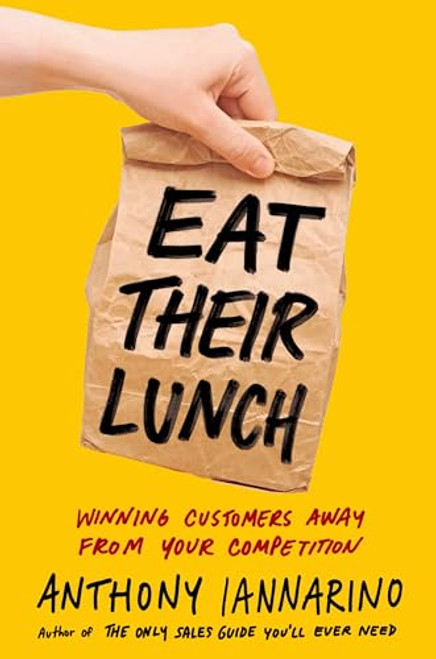Inspired by a quip attributed to management guru, Peter Drucker, Culture Eats Strategy for Breakfast, this book is a crash course for turning culture into competitive advantage. Culture isn't the enemy of strategy and performance, but an equal player in the game, not to be underestimated or overlooked. Culture Eats Strategy for Lunch is for everyone trying to work within a culture to make something happen. Each of us moves daily through a myriad of cultures, from neighborhood, to organization, school and church. And it is our connection to those cultures, which either inspires the best within us or reduces us to average. The authors teach you how to use the force of culture to make your work environment what you've always wanted it to be: a healthy place with inspired people and boundless organic growth. This book follows in the tradition of Coffman's first bestseller, First, Break All the Rules, in that the secrets come from the study of high performing organizations, where culture drives results. Effective culture is like a six lane suspension bridge, and poor culture is like a swinging bridge strung together with fraying rope. The practices of extraordinary cultures and their uninspiring counterparts emerged through decades of work and research. The qualities that make a culture excellent are about 80 percent generic and 20 percent unique. Competitive advantage results from the 20 percent that slam-dunks the brand promise to the customer. Coffman and Sorensen, seasoned, highly experienced researchers and consultants, usher in a new perspective which challenges some bedrock, but time-worn organizational practices, from the little boxes on the organizational chart to the employee survey and the bureaucratic veneer. Some of our practices are obsolete, but more to the point, our methods no longer match to goals we need to achieve. Why buy the piano when what you want most is to hear the music?
Culture Eats Strategy for Lunch
MSRP:
Was:
Now:
$23.59 - $109.67
(You save
)
- SKU:
- UPC:
- 9780615577968
- Maximum Purchase:
- 3 units
- Binding:
- Hardcover
- Publication Date:
- 2013-09-23
- Author:
- Curt Coffman;Kathie Sorensen
- Language:
- english
- Edition:
- 1st

You'll Never Eat Lunch in This Town Again
MSRP:
Was:
Now:
$70.23 - $83.25

Surviving an Eating Disorder: Strategies for Family and Friends
MSRP:
Was:
Now:
$11.36 - $23.87

Brand: Slack Incorporated
Culture in Clinical Care: Strategies for Competence
MSRP:
Was:
Now:
$69.60 - $149.13

Portfolio
Eat Their Lunch: Winning Customers Away from Your Competition
MSRP:
Was:
Now:
$13.09 - $35.70

Hollie Sharroky
Strategies for Culturally and Linguistically Responsive Teaching and Learning
MSRP:
Was:
Now:
$76.21 - $140.07

Never Take a Pig to Lunch and Other Poems About the Fun of Eating
MSRP:
Was:
Now:
$8.90 - $300.00

Unknown
International Management: Culture, Strategy, and Behavior, 8th Edition
MSRP:
Was:
Now:
$14.10 - $56.36

Brand: Blackwell
The Cultural Politics of Food and Eating (Blackwell Readers in Anthroplogy, No. 8)
MSRP:
Was:
Now:
$12.85 - $60.87
!


